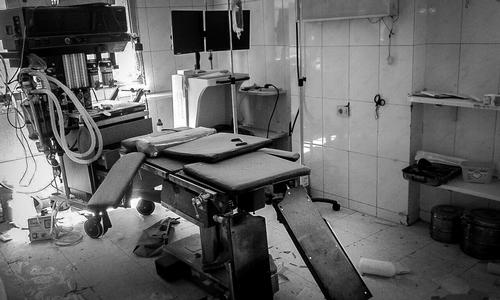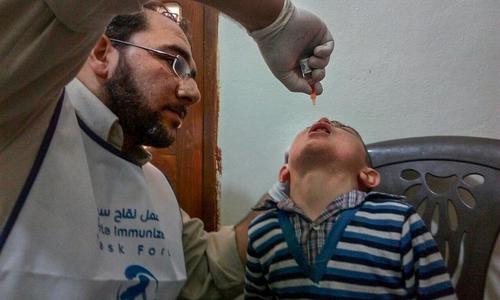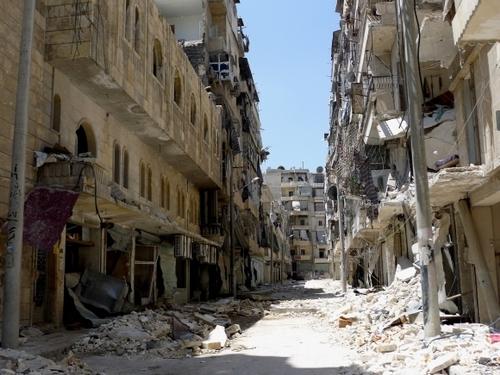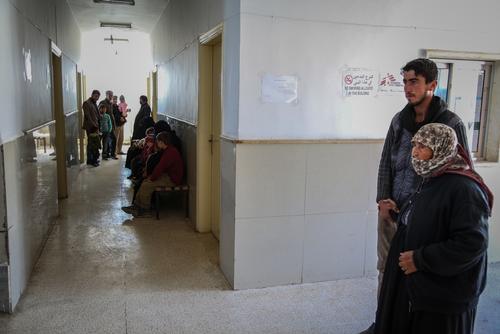Al Zahraa hospital was this week the latest hospital to be damaged by an airstrike in besieged east Aleppo, where 250,000 people are now trapped in an increasingly unsustainable situation. The medical facility was hit during the bombing on Tuesday evening and had to stop activities after doors, windows and an electricity generator were destroyed. Fortunately, there were no human losses.
“We are under attack almost every day. All health facilities in the city have been affected. We do what we can and we use what we have to provide care to people trapped in the city,” says physiotherapist Mustafa Karaman, a volunteer at an MSF-supported hospital that was last hit in August. “In the city life has become almost impossible,” adds Karaman. “We as medical staff cannot go and leave our people behind.”
Since mid-July, all of the eight hospitals still functioning in east Aleppo have been damaged at least once – half of them repeatedly – in bombings and shelling that, with the last incident on Tuesday, amounts to 13 attacks overall. All these hospitals receive MSF support. Damage usually means having to suspend activities in a besieged city where sick and wounded people simply can not look for assistance elsewhere. Some of these hospitals even had to change their location after becoming completely non-functional. Renewed fighting in Aleppo starting in July led to the eastern non-government-controlled part of the city becoming surrounded by hostile forces and cut off from supply routes, thus leaving an estimated 250,000 people trapped and struggling to survive.
Despite the siege, in recent days MSF has been able to send a shipment with supplies for the eight hospitals still functioning inside east Aleppo. Since 2014, MSF has been providing drugs and supplies to health facilities inside east Aleppo, including lifesaving surgical kits and medical equipment.
In east Aleppo neighbourhoods, only a few dozen doctors and surgeons are left to care for hundreds of thousands of people in dire need. Medical staff face an unknown future, with limited supplies, limited space, and no way to refer patients beyond the siege lines.
“All warring parties must understand their duty to respect the rules of war. They must stop bombing hospitals and civilian infrastructures, allow the severely sick and wounded to be evacuated and not cut the supply of food, drugs and vital goods into the city,” says MSF Middle East programme manager, Pablo Marco.
MSF is running six medical facilities across northern Syria and is supporting more than 150 health centres and hospitals across the country, many of them in besieged areas.






